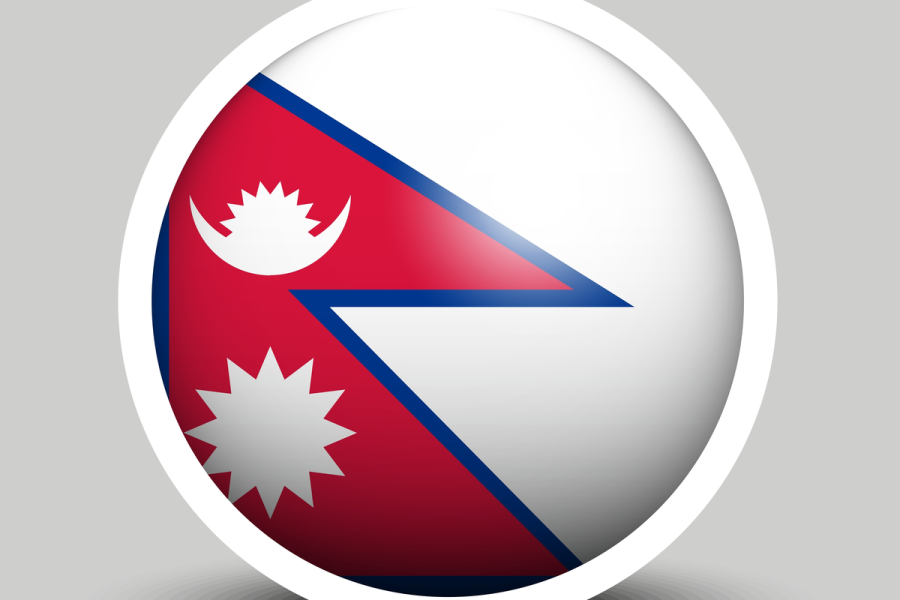Columns
Opportunity or victim of geo-politics
Nepal’s geo-politics has both opportunities and risks depending on the capability of our leaders.
Lok Raj Baral
The biography of a nation is determined by a number of factors; most important of them is geographical location. And security relating to external threats is partly addressed by the location of the country and partly by its reliance on a well-crafted foreign policy supported by adept diplomacy. The geographical location of the United States, for example, is itself a guarantee of its national security as it is physically far away from the hub of external manipulation and conflicts. Separated by the Pacific and the Atlantic, the US and Canada along with some other peripheral countries are to some extent protected from external invasions and occasional incursions unlike their European counterparts including Russia.
Today, the much-hyped activities being displayed by the Western powers against the perceived Russian threat against Ukraine constitutes an offensive defence strategy in order to restrain Russia. Russia finds itself surrounded by hostile powers including Ukraine and some other smaller republics of Eastern Europe and the Baltic region, so it is determined to counter any such move that might be used in endangering its security. Geography has now given rise to active geo-politics bringing other big powers closer to the Russian border. All wars, big or small, have been fought in the European theatre as ambitious countries are physically integral to each other.
Similar situation
Coming to South Asia, a similar situation exists as all South Asian states constitute a single physical entity despite being separate politically. Among these countries, Nepal and Bhutan are situated between the two biggest countries in Asia who are rival powers, though the two countries have never gone to war since the invasion of Chengiz Khan. With the coming of communist China, particularly with the annexation of Tibet by China, border conflicts have occasionally engulfed these two countries.
In 1962, they experienced a fleeting war that was terminated unilaterally by China. Nevertheless, with a surging ambition to become a world power, and the psychology of being hegemonic in Asia, the scope of conflict has increased in recent times. Other regional powers opposed to China's rise, particularly its assertive postures for settling territorial disputes, are driven to enter into alliance politics against China. India, the original initiator of non-alignment, is now closer to the West showing a departure from its past policies and strategies.
The rise of China and its overall impacts on the Asia-Pacific region have made many countries jittery, thus prompting them to find alternative foreign and security solutions. S Jaishankar, whose entire career is shaped by his understanding, theorising and practicing the foreign policy of India, has well articulated the changed Indian foreign policy in his book The India Way in which he suggests making a departure from the conventional way of making and executing foreign policy.
Now countries like Nepal face a new context, time and situation in their neighbourhood and the world. Sandwiched between the two competitive powers with the mission of dominance, how can Nepal calibrate its foreign policy using geographical location as an opportunity? Can India change its conventional approach to its Nepal policy by entering into a new amicable and practicable relationship?
Today’s Nepal-India relations can be characterised by two theoretical and practical aspects—de jure and de facto. The de jure relationship is confined to treaty provisions that encompass security, economic and people-to-people relations. India thinks that the 1950 treaty is still relevant, taking into consideration perennial interdependence, despite some resentful but ambiguous voices calling for updating the treaty.
Yet, observing the practices of bilateral relationship, the security aspects of the treaty and the letters exchanged with it have eroded with both sides not sticking to it. Political, security and economic interactions with China in particular has reduced the treaty to the de jure level as Nepal cannot join India to invoke the treaty in case China and India, though hypothetically, go to war. Nor can China replace India even if India and Nepal decide to change the framework of their relationship. The overall dominance of India would continue in a de facto sense as nothing has changed but perceptions.
If continuing trends are any guide, Nepal’s imperative is only to use geography as an opportunity by devoting all its efforts to accelerate development without annoying either of the two neighbours. For, using the same old strategy of politicising relations or making opportunistic tilts to score political advantage would no longer work. Time demands prudence, realistic analysis, and sincerity rather than policy brinkmanship.
Recent trade figures and people trekking to India for job opportunities are on the rise as Nepal is increasingly becoming incapable of absorbing its own people within the country. Governments that come and go very often have no short-term and long-term policies to execute in order to reduce the gap. It is still valid what an American political scientist Myron Weiner wrote in 1971 in which he described India as a “safety-valve” for Nepal.
Dependency syndrome
Unless Nepali rulers do not change their thinking drastically to prioritise greater employment opportunities for both skilled and unskilled manpower within the country, and also create a rapid delivery system for poor people during natural calamities, conflicts and other conditions that drive Nepalis to India, the dependency syndrome will be a permanent phenomenon. The politicians’ high-flown idea and slogans or their tendency to curse India for all ailments for underdevelopment will not reduce the stark problems faced by the people. What would happen if India unilaterally withdraws from the treaty relationship but decides to follow Most Favoured Nations regime as it has with other countries ending all special arrangements made by the two countries?
Will India remain indifferent to any third country activities which India thinks are prejudicial to its national security? Or hypothetically, can China come down south of the Himalaya to the extent of provoking India and other powers to make moves against China? Such a possibility is remote as China knows full well its own limitations and risks in case it takes such a course. It will be both practically untenable and unwise because such a suicidal course would drive its adversaries to wage war against China. Nevertheless, the manner in which Xi Jinping’s China seems to spread its wings in all directions and the response to it may create a dangerous situation in the region. Nepal’s geo-politics has both opportunities and risks depending on the capability of our leaders.




 20.53°C Kathmandu
20.53°C Kathmandu















